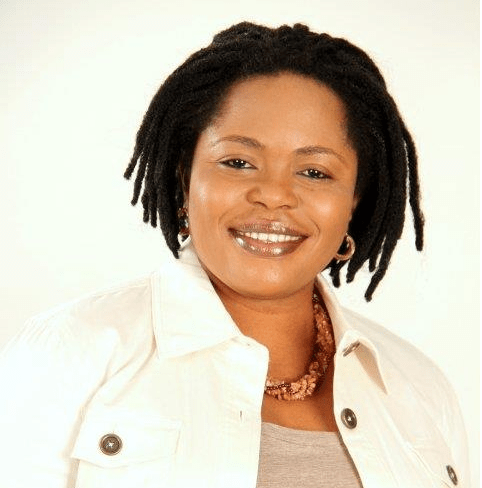Bámidélé Adémólá-Olátéjú
The issue of underdevelopment in Nigeria is not new. What is new is the headwinds of restive youths, insecurity, a ballooning population, the globalising effects of the coronavirus pandemic and dwindling national income.
I spent the last four weeks traveling through the West of Nigeria and I am very worried. I am worried that we are approaching a crescendo of chaos. Where are we going to find money to fix our roads and build the much needed infrastructure that will take us into modernity?
How do we tackle this mounting insecurity without retiring into tribal enclaves? How do we build an economy to engage the massive youth demographic? These are questions we must ask, while we interrogate our very limited options.
There is an urgent need to rethink our development approach. Poverty is multiplying everywhere because corruption has marked us, and now insecurity is defining us. Everywhere in the hinterland and the cities, there is the precipitous loss of capital and food insecurity.
If Nigeria must avert disaster, we need some kind of social justice or social equality. Horizontal inequality in Nigeria is widening at an alarming rate. I see intelligent people of similar origin, who do not have equal opportunities at achieving upward mobility. Many are working harder and making less money.
Every day, the skilled in the South-West are plotting their escape or that of their children from the country. There is a huge problem if young people have to leave Nigeria to find better jobs, better professions and upward mobility.
Where is the future if we can only get quality education and economic opportunities for our children in the global North?
Given the multidimensional nature of our development crises, we need to rethink how we approach structural transformation. Yes, the poor will always be with us but we must examine the cultural, historical and political processes that produce and reproduce inequality, if we must tackle poverty and engineer development.
There is a direct and causal relationship between inequality and the control of resources and mechanisms of opportunity. It is time to dissect and refocus our understanding of capitalism, politics and power.
This is not a socialist tirade. The two perspectives we must look at urgently are: Using social protection to improve rural incomes and a move from an agriculture-based society to an industry-based society. These two plans are a marriage of short term goals and long term vision to develop the economy.
While higher incomes will lead to higher GDP per capita, economic growth is not development. Real development lies in achieving an industrialisation control over policies of investment, capital flow and labour regulations.
We can’t do social protection and industrialisation if we keep lying to ourselves about our population. We need a good identity scheme. Social protection through the distribution of money under trees in villages is a farce.
How do we measure progress and validate processes with such a method? We must resolve to think deep and stop doing stupid things.
While going through the nooks and crannies of the West of Nigeria, I see glimmers of hope. It is not all negative. Being a late-comer to development has its advantages that can be harnessed.
We can only tap into those advantages by not electing fossilised leaders. These advantages can best be exploited with visionary leaders and a responsive civil society.
Our democratic environment must prioritise the interests of the poor, engage in the virtues of democratic governance, partnership, participation and shared benefit through a transparent state-civil society-private sector interface.
To emerge from the gorge we dug ourselves into, the evil of corporate cronyism is one of the evils we must exterminate.
An example of corporate cronyism is President Buhari’s ineffective, incestuous appointments into Nigeria’s security architecture and many other agencies. His presidency has created arbitrage in every sector of the economy.
Everyone in Abuja is a broker of some sorts. Throughout the country, corruption and cynicism rule with the corrosive effects etched on our faces.
When we had the money, we blew the opportunity through profligacy and outright theft. Where are we going to find the money to build the roads, the hospitals, the schools, the power grid?
I am afraid, time is running out. We must get creative and gain speed. The triumvirate of underdevelopment, environmental destruction and poverty is too potent to ignore.
We must find a way to connect modernity and tradition and protect our rapidly declining environment. It is clear to all who think that the only option we have with the Buhari’s administration is to wait him out.
READ ALSO: Assessing the Nigerian elite’s approach to regulation
It is hard to accept but in truth, we are stuck! Whoever is interested in becoming our next president must begin to think creatively and work out a creative destruction plan. Our next president must not be a vacuous, shallow man in billowing agbada, who is only interested in power for its own sake.
It is imperative that whoever aspires to lead Nigeria next must present to us a rigorous plan for creating a true developmental democratic state; a social contract for comprehensive and positive actions built on common determination as an imperative. S/he must be willing to establish radical, far-reaching, transformative change.
Nigeria can no longer wing it. We need proactive strategic policy measures to compete in a fast evolving global knowledge-based economy propelled by the dynamics of information and genomics.
Rethinking development means we have to accept to transfer power from those who have it, to those who do not. It means we have to take resources from those who have, to those who have not. Why?
History tells us that the lives of the majority of Nigerians who are poor can only be better when politics is determined by their interests. We can bridge the gulf between development and underdevelopment, between affluence and poverty, between nature and human aspirations, through echoes of common hope, clear goals and concerted effort.
No matter how we cut it, only a partnership of shared values constructed for the common good can save Nigeria from imminent ruin. Time is running out!
Follow Bámidélé Adémólá-Olátéjú, a farmer, youth advocate and political analyst on Twitter @olufunmilayo












Leave a Comment
You must be logged in to post a comment.